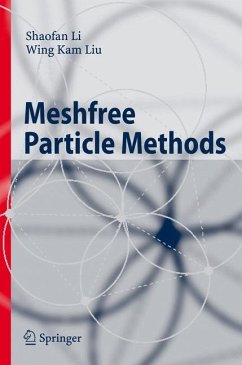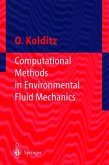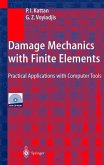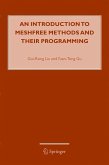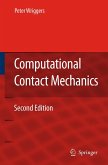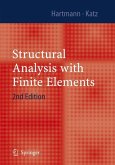Meshfree Particle Methods is a comprehensive and systematic exposition of particle methods, meshfree Galerkin and partitition of unity methods, molecular dynamics methods, and multiscale methods. Most theories, computational formulations, and simulation results presented are recent developments in meshfree methods. They were either just published recently or even have not been published yet, many of them resulting from the authors´ own research. The presentation of the technical content is heuristic and explanatory with a balance between mathematical rigor and engineering practice. It can be used as a graduate textbook or a comprehensive source for researchers, providing the state of the art on Meshfree Particle Methods.
From the reviews of the first edition:
"The book presents a comprehensive exposition of meshfree methods with applications to engineering problems ... . the objectives of the book are to be a pedagogical tool for novices, serving as a (graduate) textbook and to be a comprehensive source for researchers, providing a state-of-the-art technical documentation on meshfree particle methods. The long list of 475 references to relevant publications and the detailed program listing of an exemplary meshfree algorithm underline this goal." (Michael Junk, Zentralblatt MATH, Vol. 1073, 2005)
"The book presents a comprehensive exposition of meshfree methods with applications to engineering problems ... . the objectives of the book are to be a pedagogical tool for novices, serving as a (graduate) textbook and to be a comprehensive source for researchers, providing a state-of-the-art technical documentation on meshfree particle methods. The long list of 475 references to relevant publications and the detailed program listing of an exemplary meshfree algorithm underline this goal." (Michael Junk, Zentralblatt MATH, Vol. 1073, 2005)

